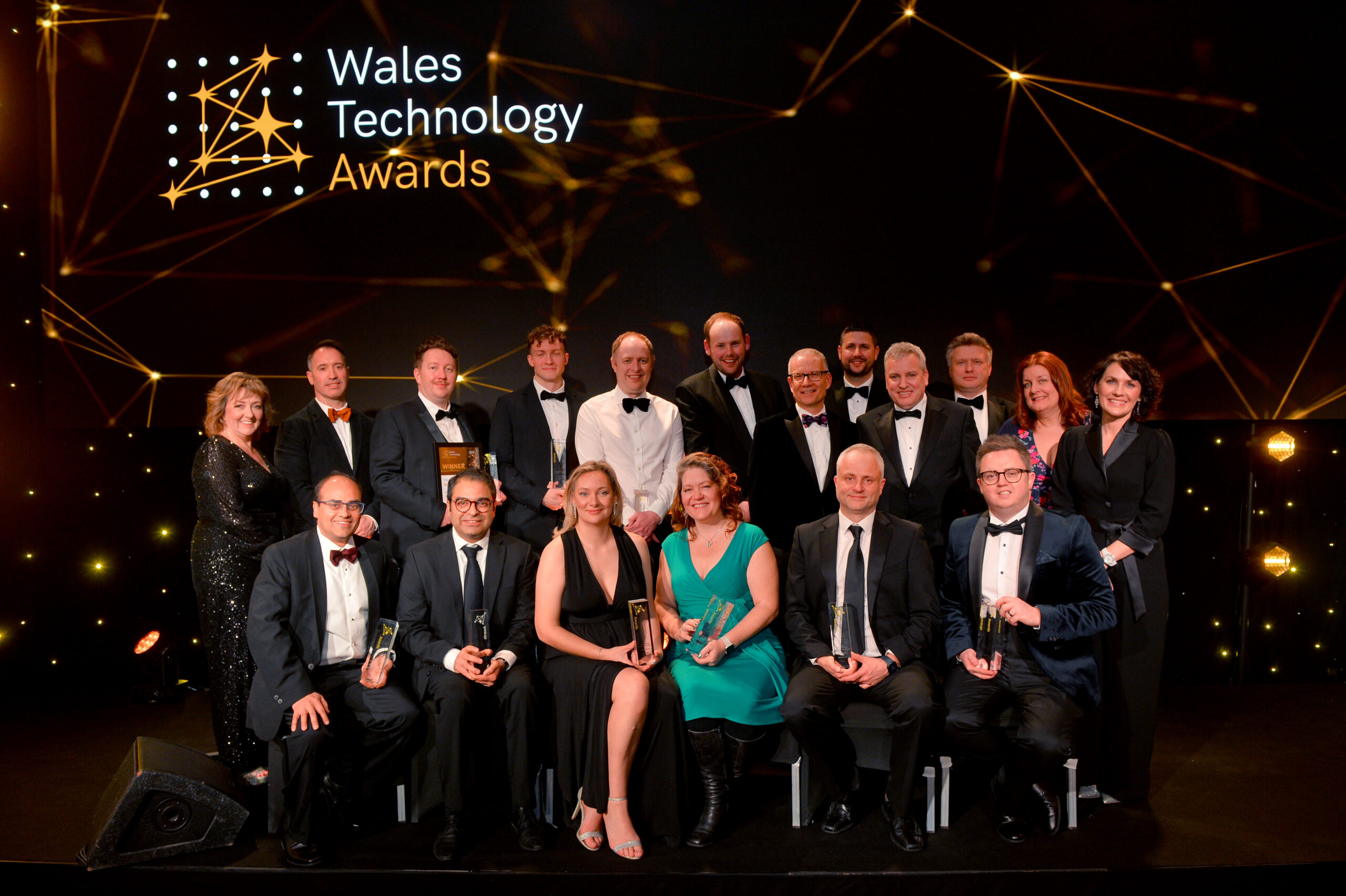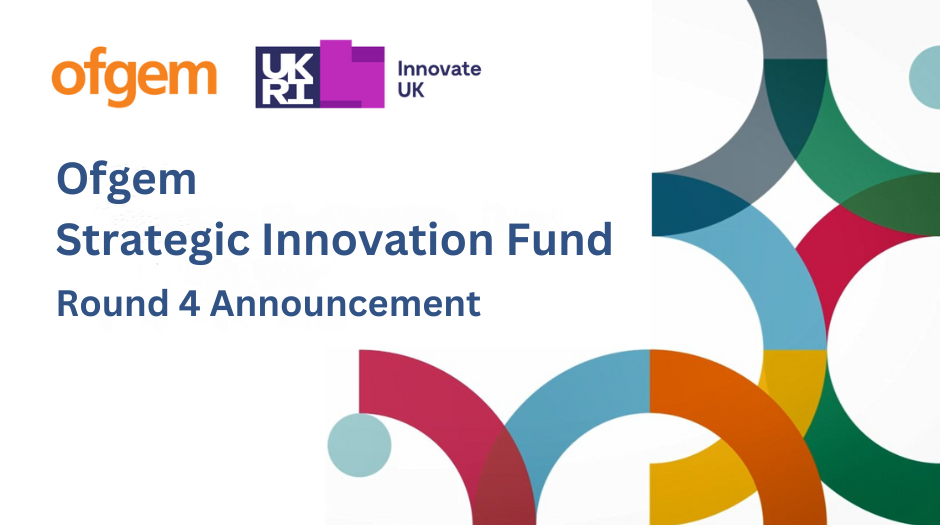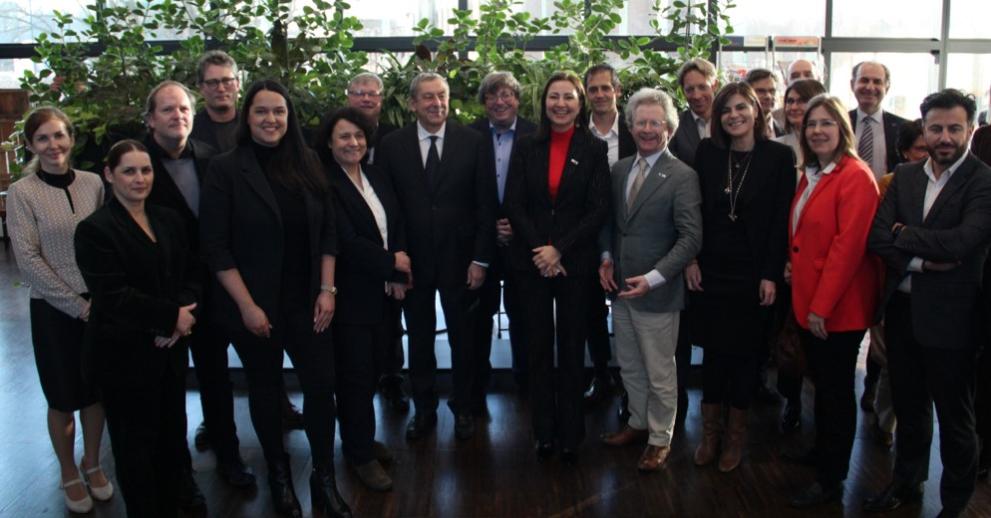Innovate UK Women in Innovation Programme Outrage
The recent Innovate UK Women in Innovation outcome has drawn significant attention, particularly after Innovate UK's failure to deliver on its funding promises for women-led projects. The initiative, which began in 2016, aims to foster female entrepreneurship by offering financial support and mentorship. However, the most recent round of awards has been mired in controversy, as only 25 applicants were going to receive funding instead of the promised 50, sparking backlash and concerns about Innovate UK's commitment to gender equality.
Women in Innovation Background
Women in Innovation was designed to address the gender disparity in the UK's innovation sector, aiming to support women entrepreneurs and innovators with financial resources and expert mentorship. It has played a crucial role in fostering female participation in a traditionally male-dominated field. Innovate UK has been credited with increasing the representation of women innovators, noting that successful grant applications from women have risen from 1 in 7 in 2016 to 1 in 3 in recent years.
The program’s focus on creating opportunities for women to grow and scale their businesses has been widely welcomed. However, in the 2024 iteration of the program, the initiative drew significant criticism when Innovate UK announced only 25 of the originally promised 50 projects would receive funding. This decision, seen as a significant misstep, left many applicants feeling unsupported and cast doubt on the future of gender equity in UK innovation. The shortfall in funding not only affected the individual businesses hoping for support, but also raised broader questions about how resources are allocated and the priorities of public funding bodies like Innovate UK.
Innovate UK’s Response and Proposed Measures
This situation prompted Innovate UK to acknowledge their mistake. They admitted that their decision to prioritise fewer projects was wrong and issued a public apology, recognising the negative impact this had on applicants and the larger innovation community. Innovate UK also confirmed that they would fund the remaining 25 projects, thus meeting their original commitment of 50 awards with a total investment of £4 million.
In the face of mounting criticism, Innovate UK has laid out a series of measures aimed at rectifying the situation and ensuring that such mismanagement does not happen again. Their response has been characterised by transparency and an effort to rebuild trust with stakeholders. They have committed to fully funding the 50 projects as originally promised, stating that they are already in the process of contacting the additional 25 successful applicants.
To further demonstrate their commitment to supporting women in innovation, Innovate UK has promised to reach out to all applicants to provide information on additional support and resources available to them. This includes highlighting various services within the broader Innovate UK system, such as the Innovate UK Catapult Network and Business Connect, which are designed to help innovators at different stages of their entrepreneurial journeys.
Innovate UK has also pledged to improve its strategic engagement with business leaders and gender equality advocates to better understand the needs of women innovators and create new opportunities for them. They are working on refining their internal processes and co-creating new programs that will expand the support available to women in innovation.
Rebuilding Trust and Accountability
While Innovate UK’s quick response and admission of fault are positive steps, the scandal has emphasised the importance of accountability in public funding. There is now greater pressure on Innovate UK to ensure that such mistakes are not repeated. By reaffirming their commitment to gender equality and promising to deliver on their initial funding promises, Innovate UK is attempting to restore its credibility within the innovation community.
Moving forward, Innovate UK will need to demonstrate that it has learned from this controversy. Its plan to co-create opportunities with business leaders and advocates, alongside improving transparency and funding processes, is critical to regaining the trust of the community it serves. Gender equality advocates are also calling for increased oversight to ensure that public funds are managed responsibly and that women innovators receive the support they need to succeed.
Broader Implications for Women in Innovation
This scandal (for this author, who has been watching too much Bridgeton) has highlighted the broader challenges that women face in the innovation sector. While initiatives like Women in Innovation are crucial for addressing gender disparities, they must be backed by consistent and reliable support. The Innovate UK funding shortfall serves as a reminder that efforts to close the gender gap in innovation require more than good intentions - they demand effective execution and follow-through.
The fact that applications for this year’s Women in Innovation program reached an all-time high (1,452 applications) is a positive sign that more women are seeking opportunities in the innovation sector. However, with only 50 projects being supported at a maximum grant of £75,000 each, the lack of funding threatens to undermine this progress and further delay and/or disruption women entrepreneurs and their business plans, which could have long-term implications for their success.
Shaping the tenth framework programme (FP10)
Member States Advocate for Greater Influence in Shaping FP10
The tenth framework programme (FP10) for research and innovation in the European Union is garnering significant attention from member states who are calling for a more prominent role in its strategic planning. This development follows the adoption of a new opinion paper by a special task force of the European Research Area and Innovation Committee (ERAC). The paper emphasises the need for a stable and predictable funding framework and the inclusion of Collaborative Research Actions to support basic research.
A Call for Enhanced Strategic Involvement
The task force's recommendations reflect a broader desire among EU governments to have a more substantial say in setting the priorities for FP10. This includes making strategic choices that align with national and regional research goals, thereby leveraging national, regional, and private investments more effectively. The opinion suggests that a more consultative approach involving member states and stakeholders could enhance the programme's relevance and impact.
Addressing the Funding Issue
While the opinion paper does not specify a budget, it highlights the importance of a stable financial framework for research and innovation. This is crucial to ensure the success of FP10 and maintain its competitive edge globally. However, the absence of specific budget recommendations has drawn criticism from various quarters. Kamila Kozirog of the European University Association (EUA) and Mattias Björnmalm of CESAER highlighted the missed opportunity to advocate for increased funding. Both stress the necessity of achieving the 3% GDP target for research and innovation, with a public effort of 1.25%.
Simplification and Inclusivity in Funding Mechanisms
The task force advocates for simplifying the structure of Pillar II, which currently includes calls for Research and Innovation Actions and Innovation Actions for higher Technology Readiness Levels. By adding Research Actions, FP10 could make it clearer that Pillar II is also dedicated to research, not just innovation-focused projects. This aligns with calls from the League of European Research Universities (LERU) for more simplification in grant applications.
Additionally, the task force recommends evaluations of the Widening measures aimed at closing the east-west gap in research capabilities, and the European Institute of Innovation and Technology (EIT). The opinion also suggests phasing out instruments that are no longer relevant, though it does not specify which ones.
Positive Views and Constructive Criticism
The European Research Council (ERC) and Marie Skłodowska-Curie Actions (MSCA) receive positive mentions for their roles in supporting career development and breakthrough research. The European Innovation Council (EIC) is also praised for addressing gaps between research excellence and market transformation. However, there is a recommendation to move "Missions" out of FP10, as their objectives extend beyond the programme’s scope.
Stakeholder and SME Involvement
The task force stresses the importance of involving stakeholder organisations in the planning and oversight of FP10. While this move is supported by many, including EUA and CESAER, concerns remain about the potential for increased member state involvement to slow down priority setting. Moreover, acknowledging the critical role of SMEs, the task force suggests exploring the possibility of lowering their financial contributions in certain partnerships.
Beyond EU Borders
A continent-wide approach and faster association processes for neighbouring countries sharing EU values are prioritised to bolster European research and innovation. This includes swift associations with countries like Switzerland to leverage the full research and innovation capacity of Europe.
Towards a Single Market for Knowledge
The opinion supports the concept of a "single market for knowledge" and the idea of research and innovation as a "fifth freedom," enabling the free movement of research, innovation, knowledge, and education. This vision, proposed by former Italian Prime Minister Enrico Letta, aims to position Europe as a global leader in research and innovation.
Conclusion
The call for a more strategic role in shaping FP10 highlights the evolving landscape of European research and innovation policy. By addressing funding stability, simplifying mechanisms, and enhancing stakeholder involvement, FP10 aims to build on the successes of its predecessors while adapting to new challenges. The collaborative approach and strategic investments envisaged in FP10 could pave the way for ground breaking advancements and sustained economic growth in the EU.
EU's AI Strategy Falls Short
The European Court of Auditors (ECA) has issued a critical report on the European Commission's (EC) strategy for artificial intelligence (AI), highlighting significant shortfalls. The report reveals that the EU underspent on AI by €600 million due to delays in the 2021 launch of Horizon Europe.
Key Failings Identified
The ECA's audit identifies several key issues that have hindered the EU's AI strategy:
- Lack of Post-Project Checks: There were insufficient mechanisms to monitor projects after their completion.
- Fragmented Management: A disorganised array of departments and agencies were responsible for AI policy, leading to inefficiencies.
- Inadequate Performance Indicators: The EC lacked an accurate overview of funded AI projects, impeding effective monitoring and evaluation.
Mihails Kozlovs, the ECA member who led the review, emphasised the need for the EC to enhance its focus on delivering results. "More than five years after adopting the EU AI plan, weaknesses in implementation and performance monitoring are still evident," he stated at a press conference.
EU Commission's Defence
In response, the EC defended its record, rejecting many of the ECA's proposals. The EC highlighted the establishment of the European AI Office, which aims to enforce the new AI Act and bolster support schemes. Despite these advancements, the ECA's findings come at a crucial time, as the EU continues to trail the US and China in AI development, particularly in patents and private investment.
Comparative Investment Figures
According to the Organisation for Economic Co-operation and Development, the US led in AI venture capital funding in 2023 with €55 billion, followed by China with €18 billion, and the EU with just €8 billion - a significant drop from 2022.
Historical Context and Strategy Implementation
The audit traces back to 2018 when European governments began releasing ambitious AI plans. The EC’s strategy included significant investments through the Horizon 2020 and Horizon Europe programs. While nearly meeting its spending targets for 2018-2020, the EC fell short by €600 million for the 2021-22 period due to delays in Horizon Europe's adoption.
Expert Opinions
Robert Praas, an AI specialist at the CEPS think tank, deemed the audit an "accurate assessment" of the EU's slow progress in AI innovation. He attributed this to a gap between political ambition and implementation capability, suggesting that the EU's regulatory focus hindered its innovation potential.
Coordination and Fragmentation Issues
The ECA pointed out the absence of a central coordinating body for AI projects, leading to overlapping and fragmented efforts. For instance, three different AI taxonomy projects were funded by various EU bodies without coordination, exemplifying the management inefficiencies.
Performance and Exploitation Challenges
The audit highlighted that while Horizon projects were monitored during their lifetime, post-completion checks were lacking. In many cases, research did not translate into commercial applications. A cybersecurity project on autonomous cars, for instance, failed to commercialise despite an extensive 117-page exploitation plan.
Furthermore, the audit found that per €10 million spent on AI in Horizon 2020, only 0.65 patents were applied for, well below targets.
EC’s Response to Recommendations
The EC agreed to update its AI investment targets considering the rise of generative AI but rejected the ECA's calls for a new framework for tagging and tracking AI financial support, citing cost and burden concerns. It also dismissed the need for AI-specific performance targets, arguing that existing indicators under Horizon Europe and Digital Europe were sufficient given the fast-evolving nature of AI technologies.
The ECA’s report highlights the need for improved coordination, monitoring, and strategic focus if the EU is to enhance its competitive standing in the global AI landscape.
Wales Technology Awards 2024 Winners Announced
Technology Connected recently played host to the eagerly awaited Wales Technology Awards 2024, in collaboration with Headline Partner de Novo Solutions. The grand gala served as a platform to spotlight the remarkable accomplishments and ground-breaking innovations within Wales' thriving tech sector.
Hosted by BBC Wales news anchor Jennifer Jones, the Awards ceremony drew together 300 luminaries from across the Welsh technology landscape, including industry titans, representatives from the public and private sectors, and avid supporters. It served as a tribute to the significant contributions of the Welsh tech industry, showcasing its pivotal role in shaping communication, business practices, and global engagement.
One of the evening's standout moments was the presentation of the prestigious 'The Sir Michael Moritz Tech Start-up Award', shining a spotlight on the exceptional start-ups in Wales driving innovation in cutting-edge technologies. In collaboration with Hexa Finance, this coveted accolade was clinched by Optimise-AI, marking a testament to their creativity and ingenuity.
The distinguished winners of the Wales Technology Awards 2024 included:
- The Sir Michael Moritz Tech Start-up Award – Optimise-AI
- The Aled Miles International Impact Award – Finalrentals
- Rising Star of the Year Award – Matthew Davies (The Social Work Way)
- Best Tech Leader Award – Sameer Rahman (DataMonet)
- Best AI Application Award – Davies
- Best Blockchain Application Award – Soulindata in collaboration with Cardiff Metropolitan University
- Best Digital Transformation Award – Credit Canary
- Best EdTech Application Award – Animated Technologies
- Best Greentech Application Award – Butterfly Data
- Best Healthtech Application Award – clear_pixel VR
- Best VR / AR Application Award – ElectricPocket
Welsh Secretary David TC Davies, the Guest of Honour, lauded the event, highlighting the crucial role of the tech sector in the Welsh economy and extending congratulations to the winners.
The Wales Technology Awards 2024 received generous support from esteemed industry organisations and stakeholders, including Headline Partner de Novo Solutions, Hexa Finance, Box UK, Deloitte, Wynne-Jones IP, HCR Law, CSA Catapult, Venture Graduates, and Cardiff Capital Region, BusinessNewsWales, NCL and RedKnight.
Avril Lewis, Managing Director at Technology Connected, praised the event's success, highlighting the pivotal role of Welsh technology in driving societal progress and combating global challenges. She reiterated Technology Connected's commitment to advancing Wales' tech industry and fostering innovation on the global stage.
RedKnight would like to congratulate the Technology Connected team for what was a fantastic evening of celebration. We are already looking forward to seeing what the Class of 2025 will have in store for us next year.
New release of EU Funding & Tenders Portal launched
The European Commission (EC) recently announced the launch of the latest iteration of the EU Funding & Tenders Portal, marking a significant milestone in its journey to enhance user experience. Drawing on the invaluable feedback from a diverse community of over 1.5 million users, which includes EU funding applicants, beneficiaries, tenderers, and experts, the EC has worked to implement improvements that cater to user needs and preferences.
This new release introduces a range of enhancements aimed at providing users with a more intuitive and immersive experience. Among the notable updates are refreshed interfaces across the Portal, with the homepage now prominently showcasing the EC's core services and functionalities. Powered by state-of-the-art technology, the funding page search engine has been revamped to deliver more precise and relevant results, ensuring users can easily discover funding opportunities that align with their interests and objectives.
For logged-in users, the EC has introduced affinity-based recommendations of 'calls for proposals,' tailored to their specific profile and preferences. This personalised approach ensures that users never miss out on relevant opportunities that could take their project forward. Additionally, to further streamline navigation, the EC has integrated a global search feature at the top right corner of the Portal, allowing users to quickly access the information with ease.
The EC’s commitment to continuous improvement means it is constantly striving to enhance user experience on the EU Funding & Tenders Portal. To provide a comprehensive overview of all the latest updates and novelties, interested stakeholders are invited to watch a 3 minute informative video, which highlights the key enhancements and previews what's to come in the future.
Ofgem Strategic Innovation Fund (SIF) Round 4 Challenges
The Strategic Innovation Fund (SIF) is an Ofgem programme managed in partnership with Innovate UK. Its purpose is to support energy network innovation that will help achieve Net Zero rapidly and at lowest cost; deliver real net benefits to energy network users and consumers; and help the UK to become a 'Silicon Valley' of energy. The next round of SIF is being launched next week, with 4 new targeted innovation challenges.
Innovators will be invited to submit an Expression of Interest (EoI), outlining their idea to address the challenges. The EoI stage will give Innovate UK an opportunity to engage innovators in developing ideas before submission into the Call for Ideas; opening on Innovate UK’s Innovation Funding Service portal on 1st May 2024.
Successful ideas will have an opportunity to pitch their idea to the energy networks. Networks will then invite the most suitable pitches to partner with them to develop their idea further, with the aim of applying to the Discovery phase of Round 4.
Innovate UK will be hosting two introductory webinars to give a more in-depth view of the new challenges and explain next steps on how to get involved in this exciting new round of the SIF:
- Thursday 7 March @ 11:00 am
- Friday 15 March @ 9:00 am
You can register your attendance for the Round 4 Challenges Launch Webinars to ensure you are informed of the new challenges.
New EIC Board holds its first plenary meeting
The recent inaugural meeting of the new European Innovation Council (EIC) Board, held on January 10 and 11, 2024, in the prestigious imec facility in Leuven, Belgium, marks a significant milestone in the journey towards fostering innovation across Europe. This event symbolises the commitment of the European Union (EU) to spearhead innovation and sets the stage for strategic advancements in European research and innovation.
Appointed by the European Commission (EC) on December 13, 2023, the new EIC Board, under the leadership of its President, Michiel Scheffer, holds a pivotal role in guiding the direction of the EIC. The Board’s responsibilities extend beyond advisory roles; they encompass shaping the strategy, work programme, thematic portfolios, and, upon the Commission's request, advising on broader innovation policy matters. This structure ensures a comprehensive approach to innovation, integrating strategic insights with practical implementations.
The EIC Board is scheduled to convene five to six plenary meetings annually. These sessions are crucial for deliberating on the EIC's strategic and operational frameworks and advising the EC on various matters within their mandate. The recent meeting marked the first plenary session with the new Board membership. The primary agenda was to establish the priorities for the Board’s work in 2024, especially focusing on strategizing and implementing the EIC's objectives for the latter half of the 2024-27 programme. This session was attended by Iliana Ivanova, Commissioner for Innovation, Research, Culture, Education, and Youth, who engaged with Board members in a fruitful exchange on the EIC’s priorities within the broader context of EU policies and the mid-term review of Horizon Europe. Horizon Europe, the EU's flagship funding programme for research and innovation, is integral to the EIC's mission, underscoring the importance of aligning the EIC's strategies with the overarching goals of the EU.
The composition of the EIC Board reflects a blend of continuity and fresh perspectives. Members serve in a personal capacity, with their terms set for two years, renewable twice. This structure facilitates the rotation of approximately one-third of the members every two years, ensuring a dynamic infusion of ideas and experiences. The current Board, comprising 10 members with renewed mandates from the 2021-23 period and 10 new members selected from a reserve list, represents a diverse and experienced group of individuals committed to steering Europe towards a brighter, innovation-driven future.
The mandate of these new and renewed members, extending until December 2025, symbolises a period of opportunity and challenge. As Europe navigates through complexities of the modern world, the EIC Board's role becomes increasingly vital. It embodies a strategic think-tank, poised to influence the direction of European innovation, making substantial contributions to the development and implementation of policies that nurture research, innovation, and education.
As the Board embarks on its journey to shape the future of innovation, its decisions and strategies will undoubtedly play a critical role in determining the trajectory of Europe's innovation landscape. With a balanced mix of continuity and new insights, the EIC Board is well-positioned to drive significant advancements in research and innovation, ultimately contributing to the prosperity and competitiveness of the EU on the global stage.
UK Research and Innovation's Leap into Open Access: Empowering Knowledge Sharing
In a landmark move, UK Research and Innovation (UKRI) ushers in a new era of academic openness. From January 2024, its comprehensive open access policy extends to monographs, book chapters, and edited collections, revolutionising the dissemination of scholarly work. This paradigm shift in knowledge sharing aligns with the growing global mandate for open access, marking a significant evolution in academic publishing.
Building on its 2022 policy for peer-reviewed research articles, UKRI now includes a broader range of academic outputs under its open access umbrella. The policy ensures that research funded by UKRI, a critical financier in the UK's academic landscape, is freely accessible to everyone. This democratisation of knowledge aims to accelerate scientific discovery and innovation by removing traditional barriers to information access.
The policy is a response to the scholarly community's call for more equitable access to research findings. It reflects a fundamental change in how research is shared, promoting transparency and collaboration across disciplines. The inclusion of monographs and book chapters is particularly notable, as these forms of academic outputs have historically been less accessible due to cost and distribution limitations.
The implications of this policy are far-reaching. For academics, it represents an opportunity to increase the visibility and impact of their work. Students, educators, and researchers worldwide stand to benefit from unrestricted access to a wider array of scholarly materials. This could particularly benefit those in developing countries, where access to academic literature is often limited. For the private sector, it will enable translation of research into innovative products, processes, and services to aid economic growth and job creation.
The response from the academic community has been largely positive, with many viewing it as a progressive step towards a more inclusive and collaborative research environment. However, there are also concerns about how this transition will be funded and managed, particularly regarding the financial implications for researchers and publishers.
UKRI's expansion of its open access policy marks a pivotal moment in academic publishing. By embracing open access, UKRI is not just enhancing the visibility of UK research but also contributing to a global movement towards a more accessible and equitable knowledge economy. While challenges remain, particularly in implementation and sustainability, the potential benefits of this policy for the global research community are immense. As this policy takes effect, it paves the way for a future where knowledge is a shared and accessible resource, fostering innovation and understanding across borders.
It’s official: UK to associate to Horizon Europe
After more than two and a half years of uncertainty and negotiations, the UK government and the European Commission (EC) have reached a landmark agreement to enable the UK's association with Horizon Europe. This momentous announcement brings a sigh of relief to UK and EU scientists who have been in limbo since 2021, uncertain about their future in collaborative research endeavours. This article explores the significance of this agreement, its implications for UK scientists and researchers, and the rocky road that led to this crucial decision.
A Milestone Agreement
The joint statement released today (7th September 2023) by the UK government and the European Commission marks a turning point in UK-EU relations, particularly in the realm of scientific cooperation. EC President Ursula von der Leyen aptly described this agreement as proof of the EU and UK's status as key strategic partners and allies. This collaboration reaffirms their commitment to being leaders in global science and research.
Under the terms of this deal, UK scientists will regain access to European Research Council (ERC) grants and will be able to coordinate academic-industrial consortia within the Framework program. This move ends the period during which UK researchers had to rely on UK equivalent grants and funding, and it paves the way for seamless integration into Horizon Europe.
Addressing Past Uncertainties
While UK academics have been able to participate in industrially-focused Pillar 2 projects of the Horizon program, the uncertainty surrounding the UK's long-term involvement caused UK participation in the program to decrease significantly. This reduction raised concerns that UK scientists might be excluded from vital European academic networks that had been cultivated over decades.
UK-based winners of ERC grants faced a difficult choice between relocating to the EU to maintain their awards or settling for UK equivalent schemes. This decision was fraught with uncertainty and implications for both individuals and the broader scientific community.
The Long and Winding Road to Association
The journey to re-associate with Horizon Europe has been characterised by twists and turns, and it has been far from straightforward. Initially, the Horizon association was agreed upon in principle at the end of 2020, as part of the Trade and Cooperation Agreement that outlined post-Brexit relations between the UK and the EU. All that was required to formalize this association was the signature of both parties.
However, 2021 saw relations sour over the Northern Ireland issue, as the UK government threatened to suspend parts of the Northern Ireland Protocol. This protocol was designed to prevent customs checks on the island of Ireland and to ensure continued peace. The EC, in response to the unresolved Northern Ireland dispute, withheld its approval for the Horizon association.
The Horizon association became intertwined with broader political disputes, remaining elusive until February of the following year when the Windsor Framework addressed the Northern Ireland issue. Despite this progress, negotiations continued to stall, with the UK seeking assurances to prevent substantial financial losses from its late entry into the program.
Details of the Agreement
While today's announcement does not explicitly detail how negotiators resolved these financial concerns, it does mention a "temporary and automatic mechanism" designed to address any significant financial underperformance by the UK. If the UK contributes 16% more than its scientists receive in grants, this mechanism would activate. The UK is set to contribute "almost €2.6 billion" annually for its participation in Horizon Europe.
Additionally, the agreement confirms that the UK will remain part of the EU's Copernicus satellite system, despite initial concerns that the UK had already missed significant calls under the program. Copernicus plays a crucial role in understanding and addressing environmental and climate change-related challenges, making the UK's continued association valuable.
Euratom and ITER: The Missing Pieces
One notable absence in the UK's renewed association with European research initiatives is Euratom, the EU's nuclear research program. As a result, the UK will not participate in ITER, a multi-billion euro collaborative project located in France aimed at building a prototype fusion reactor. The decision not to re-join Euratom was guided by the UK's assessment that its industry's long absence from Euratom and ITER programs could not be reversed.
Instead, the UK will pursue a domestic fusion energy strategy with international collaboration, including partnerships with European counterparts. This alternative program is supported by substantial funding, up to £650 million until 2027, to ensure the UK's research interests and taxpayer funding align with its priorities.
Future Steps
The association deal reached between the UK and the EU will need to be ratified by member states through the Council of the EU, adding another layer of complexity to the process. However, this agreement signals a moment of reconciliation between the UK and the EU after the divisive Brexit debates that followed the 2016 Leave vote.
Conclusion
The UK's re-association with Horizon Europe is a significant milestone for the scientific community on both sides of the Channel. It marks a renewed commitment to collaboration, innovation, and scientific excellence. While challenges remain, including the ratification process, the agreement provides a glimmer of hope for UK scientists who can once again fully participate in Horizon Europe, ensuring the country remains at the forefront of global science and research. This development underscores the enduring power of science to bridge political divides and foster international cooperation for the greater good of humanity.
Horizon Europe guarantee: application and grant offer statistics
On behalf of the Department for Business, Energy and Industrial Strategy (BEIS), UK Research and Innovation (UKRI) is delivering the statistic for 'Horizon Europe guarantee'.
This data is updated each month and includes the total number of:
- verified applications submitted to UKRI, and the total grant value requested in these applications
- grant offer letters issued to applicants, and the value of the grant offers issued.
The data is also divided according to the method used by UKRI to apply for the guarantee funds.
Number of applications and grant offers made through the Horizon Europe guarantee up to 28 February 2023.
| Guarantee grant type | Applications submitted and verified | Value of grants requested in verified applications | Grant offer letters issued | Value of grant offers issued |
| Collaborative Horizon Europe guarantee grants (hosted on Innovation Funding Service) | 1,387 | £614.0 million | 1,206 | £500.9 million |
| European Research Council guarantee grants | 211 | £304.4 million | 210 | £301.6 million |
| Marie Skłodowska-Curie Actions guarantee grants | 359 | £82.1 million | 347 | £80.3 million |
| Total | 1,957 | £1,000.5 million | 1,763 | £882.8 million
|
Apply for Horizon Europe guarantee funding
Although the UK is in the process of associating with the programme, the "Horizon Europe guarantee" scheme offers funds to academics and innovators who are unable to get their Horizon Europe grant. UKRI is distributing the cash through its grant mechanisms.
To be eligible you must:
- be based in the UK
- have been successful at applying for a Horizon Europe grant with final submission deadlines on or before 30 June 2023
- have been included on the initial grant proposal as a ‘beneficiary’ with an assigned budget
Before you submit your application for "multi-beneficiary funds," the coordinator and the European Commission must have signed your grant agreement.
For "mono-beneficiary grants," the Commission's financing offer must have been withdrawn, or you must send a letter saying that the "grant agreement preparation" process with the Commission has been terminated.
Follow the specific guidance for your type of grant here: UKRI guidance for the Horizon Europe guarantee scheme.
Source: UK Research and Innovation










